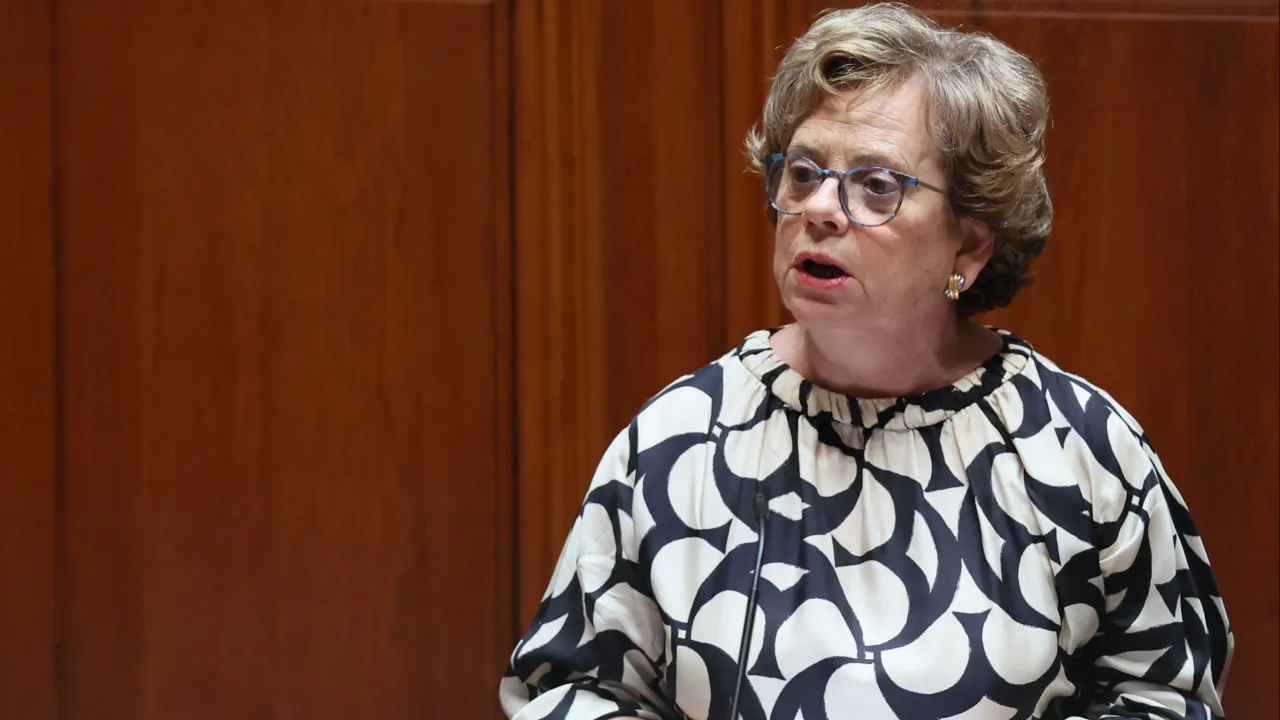
The Annual Internal Security Report (RASI) of 2024 was discussed in parliament today, marking Maria Lúcia Amaral’s debut in the Assembly of the Republic as minister.
During the debate, members of PS, PCP, Bloco de Esquerda, Livre, and PAN questioned the minister regarding the removal of the section referring to far-right movements.
The minister responded that the mentioned data “have been monitored and continue to be monitored by institutions, namely the Polícia Judiciária,” emphasizing that “it is more important for this monitoring to continue” than knowing what was or wasn’t removed from a report that includes contributions from all criminal police bodies.
The minister also stated that the 2024 RASI reveals “positive signs but also reveals difficulties and challenges that should not be ignored.”
Highlighting the “positive signs” in the RASI, the minister pointed out the decline in general crime, which “indicates that security forces are working effectively and that the measures adopted over the past year are bearing fruit.”
Conversely, she noted that the “worrying indicators demand serious reflection,” such as “the increase, although not very significant, in violent and serious crime, group crime, and juvenile delinquency which has been on the rise since 2021, alongside the increase in crimes against sexual freedom, violence against minors, and the scourge of domestic violence.”
Maria Lúcia Amaral added that the path of the last year, including valuing security force elements and reducing violent and serious crime, will continue.
In the preliminary version of the RASI, to which Lusa had access, Portugal has no far-right organization classified as terrorist, but there is a record of a branch of an international extremist organization classified as terrorist in other countries.
Without specifying which organization it is, this RASI version pointed to the existence of this branch of an extremist organization in Portugal, which has already faced financial sanctions in various countries for terrorism financing.
BE Deputy Mariana Mortágua said the action of far-right groups is growing because “the racist and hate speech that legitimizes them is growing in the Assembly of the Republic, particularly by the Chega bench.”
Pedro Pinto, from Chega, argued that “extremism when it comes from the right is bad,” but “when it comes from the left, it is good extremism.”
The Chega deputy claimed the report “is worrying because violent crime is increasing,” also pointing out the rise in assaults on prison guards.
PAN Deputy Inês Sousa Real also mentioned that the removal of the chapter has “an explanation that doesn’t convince.”
Livre Deputy Paulo Muacho emphasized that “for several years, RASI has been alerting to these far-right groups’ activities in the country,” calling for ministerial action on “the infiltration of far-right terrorists in security forces.”
Paula Santos, from PCP, stated that RASI “is marked by what was there but is no longer,” noting that “between the report that resulted from traditional information leaks to the media and the final version assumed by the Government, the chapter referring to the danger of far-right organizations was dropped.”
The CDS-PP deputy chose to discuss the far-left and the “shame and stain” on Portuguese democracy regarding the disappearance of “penalties for far-left murders by the F25.”
Rui Rocha, from IL, considered it beneficial for RASI to have more data on who commits crimes, such as sex, age, and nationality, a stance agreed on by PSD, which was approved in the previous legislature but could not be included in the 2024 report.
The IL deputy questioned the minister about this data inclusion, to which Maria Lúcia Amaral responded that “she does not yet have a closed position,” but noted that the police are aware of this information.
PSD Deputy António Rodrigues argued that “RASI is too important a document to be used as a weapon of attack between left and right,” applauding the removal of the chapter on extremisms from the report because, he justified, they should not “warn the criminal that we are going to arrest them.”
Pedro Vaz, from PS, regretted what he described as “a concern for equating a far-right terrorist with a far-left that organizes anarchist demonstrations and individual militants.”
“That concern for equivalence is wrong. And it is wrong because at this moment we have terrorist organizations arming themselves to attack the house of democracy, the democratic institutions, and the politicians of our country. (…) Equating the present with what happened 50 years ago is wrong, distorts the truth of the facts and only promotes disinformation and hatred among all,” he asserted.




